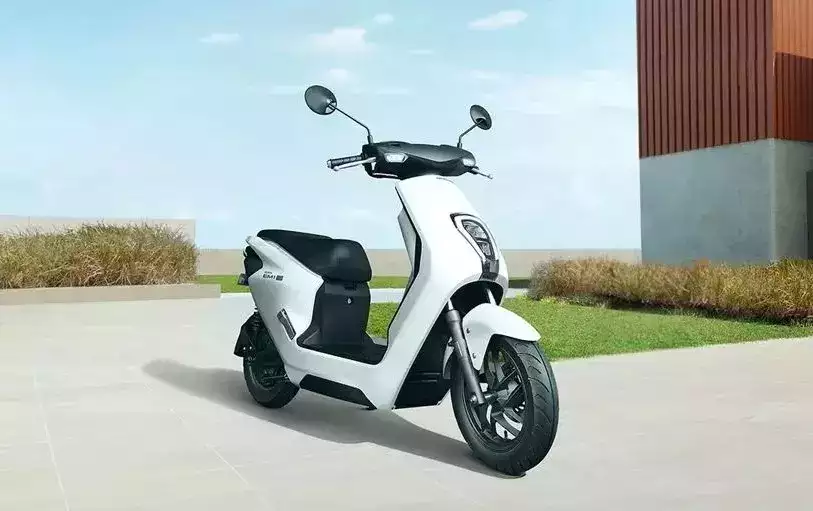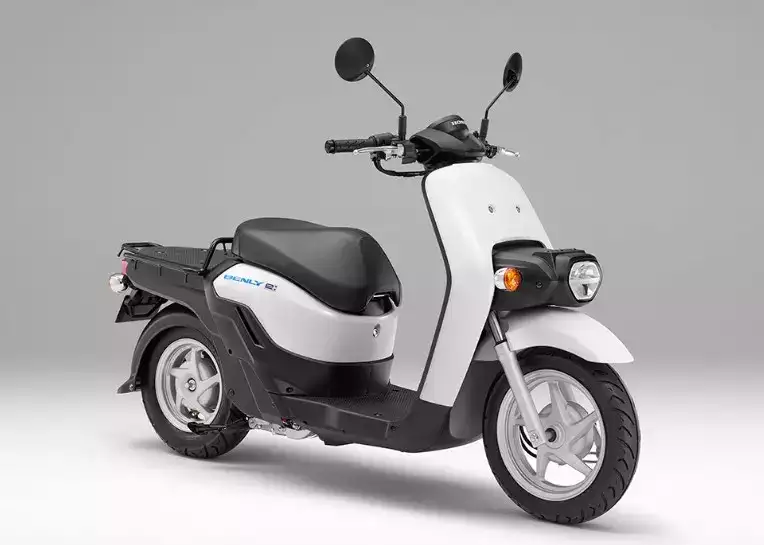
On Thursday, August 8, it was made known that Honda would supply Yamaha with electric motorcycle models for the Japanese market, based on the Honda EM1 e: and Benly e: I Class-1 category models (vehicles equipped with two or more wheels and an engine with total displacement of 50cc or less; or an electric motor with rated output of up to 0.60 kW).

This is in sync with the first announcement made in October 2016 when the two companies began talks on a possible business alliance. The idea was to meet challenges arising from safety standards and emissions regulations as well as the pursuit of electrification.
According to the pact, Honda would, before end-2018, supply 50cc scooter models to Yamaha based on the Honda Tact and Giornon. The latter, in turn, would sell these as the Yamaha Jog and Vino in Japan.
Joint development
At the time of announcing the alliance, the two Japanese automakers were producing and selling 50cc business scooter models — Honda Benly and Yamaha Gear, for the domestic market. They would now look into the feasibility of joint development and OEM supply from Honda to Yamaha of a next-generation version of these business scooter models.
Finally, the two companies said they would collaborate on issues relevant to electric motorcycles such as range, charging time, performance and cost. This is precisely what has led to Thursday’s announcement on Honda supplying its EM1 e: and Benly to Yamaha.
All this marks a dramatic turnaround from the time these two Japanese brands were bitter foes in the 1980s. The‘H-Y’ war became a reference point for a slew of management case studies where, contrary to the well known fable, Goliath in the form of Honda emerged triumphant over David (Yamaha in this case).
Perfect sense
Yamaha’s former President and CEO, Hiroyuki Yanagi, was on a visit to India in early 2018 and told this writer that the present arrangement between the two Japanese brands made perfect business sense. “The 50cc scooter market is very limited right now and exists only in Europe and Japan. Both Honda and Yamaha are struggling with this business and we thought of creating the best marriage this way,” he added.
According to Yanagi, the 50cc scooter was actually a case of “minimum mobility” since it took up a minuscule share of the Japanese market. It was in this backdrop that Yamaha and Honda were coming together to think of the best way to continue this product range going, albeit only for the local market.
Yanagi also reiterated that not too much should be read into the famous Honda-Yamaha, or H-Y, war of the 1908s. “All this happened over 30 years ago. That was during the old generation management but we represent a new generation that thinks differently,” he said. To the world outside though, the fact that the former rivals were burying the hatchet was pretty significant.
Yanagi added that electric bikes represented an important mobility initiative for the future. “However, in the case of e-motorcycles, there are technological difficulties compared to four-wheelers. We will try and make a good alliance with Honda as each of us has some know-how in this space. If we can put that together, there will be better technology in the process,” he said.
Harmonisation is key
He refused to be drawn into any discussion if this would result in the creation of an all-new electric bike from Honda and Yamaha since all this was still too early in the day. “We don't know the future style yet but we do want to collaborate. In the motorcycle industry, while competition is very important, harmonisation is as critical,” he said.
Bringing these two elements together for the perfect mix would be the best bet forward for a successful partnership. Yanagi also made it clear that the collaboration with Honda should not be misinterpreted as the beginning of a stronger association in other areas. “I don’t know yet what could happen but we will have to wait and see if there is some outcome with this harmonisation,” he said.
Much water has flowed under the bridge since then. In April 2019, a two-wheeler consortium was formed in Japan comprising Honda, Yamaha, Suzuki and Kawasaki and aimed at increasing the adoption of electric motorcycles. Two years later, this consortium decided to standardise swappable batteries and replacement systems for increased adoption of electric motorcycles in Japan.
It is still a moot point if India will feel the impact of these changes. Honda is the second largest two-wheeler maker while Suzuki and Yamaha are still some way behind with Kawasaki in an even more marginal space. There have been talks of Honda and Yamaha collaborating in electric but thus far, it looks as if Indian companies have surged ahead with the Japanese still not entirely sure if this is the best way forward.
Disclaimer: The copyright of this article belongs to the original author. Reposting this article is solely for the purpose of information dissemination and does not constitute any investment advice. If there is any infringement, please contact us immediately. We will make corrections or deletions as necessary. Thank you.





